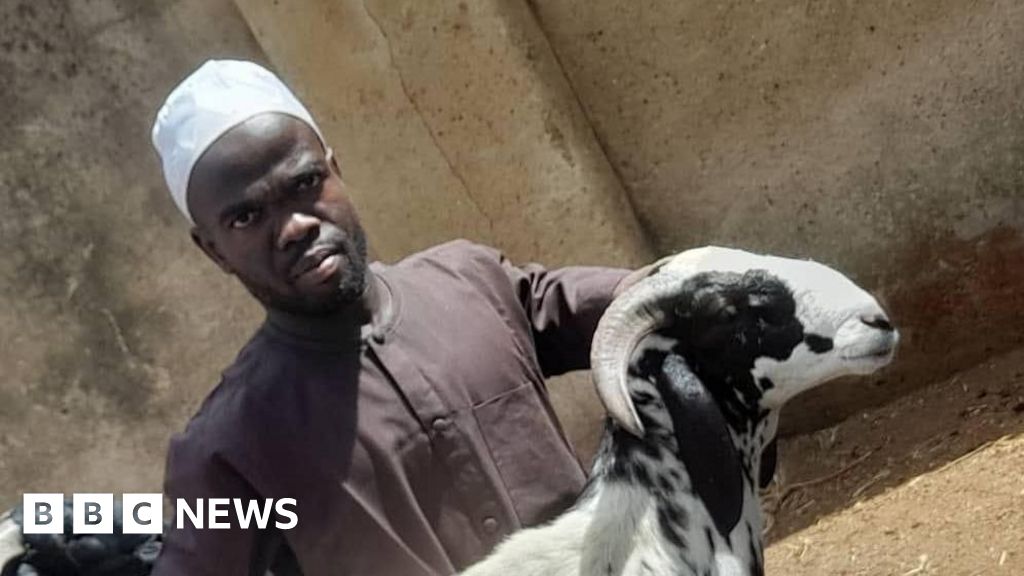“I’ve been killing a ram every year since 1976 but this year I can’t, I just can’t.”
Like many of Nigeria’s estimated 100 million Muslims, 78-year-old Mallam Kabiru Tudun Wada did not celebrate Eid al-Adha as usual because of the cost of living crisis.
Muslims around the world traditionally slaughter rams or other animals on Eid al-Adha to commemorate the Prophet Ibrahim’s willingness to sacrifice his son at the command of God.
The meat is used to prepare a sumptuous feast for the whole family, while friends and neighbors visit each other and eat the food prepared by each family.
The clergy also recommended that some of the meat be distributed to the poor and needy.
“In the past few years, I have been able to afford at least one ram, but the situation has never been this tight,” Mr Wada told the BBC in Kano, northern Nigeria’s largest city, which is overwhelmingly Muslim.
Nigeria is currently experiencing its worst economic crisis in a generation, leading to widespread hardship and anger.
Annual inflation (the average rate at which prices rise) currently exceeds 30%, the highest figure in nearly three decades. Food costs have risen even more – by 50%.
A ram now sells for an average of 100,000 naira (£50; $63), which is beyond the reach of many.
Another Nigerian, Mallam Auwal Yakasai, 66, said the only way he could afford to kill animals for Eid this year was to find a friend and share the cost.
“We have a camel so that the two of us can slaughter it together.
“For many people, things are very urgent, and for some, this arrangement is the only way they can make sacrifices.”
Muslim cleric Idris Garba Sokoto told the BBC that slaughtering a ram, goat or camel on Eid is one of the most endearing acts performed by Muslims in the service of God.
“Islam traces the origin of animal slaughter during Eid to the Prophet Ibrahim, who had a dream and was about to sacrifice his son, but God intervened and he slaughtered a ram. Since then, it has It became a religious activity.
“For cows and camels, up to seven people can pool their money to buy and slaughter them together – Islam allows this,” the cleric said.
But for many Muslims and other Nigerians, basic food is their current priority, not what some consider a luxury animal.
Shamsu Mohammed, 54, said even if he was given money to buy animals, he would prefer to buy cheaper food to stock up on food at home.
“Slaughter is not compulsory, as Islam says, slaughter is for those who can afford it. For those who cannot afford it, there is no need.
Before Eid, the ram market is usually crowded with people choosing which animal to buy and take home to their families. Often, people take great pride in choosing the largest and most impressive animal.
But this year things are very different.
Ibrahim Balarabe Wambai, who makes a living selling rams, usually spends his year around Eid.
He said the market is very different this year.
“Last year I sold 15 rams but this year I’ve only sold seven.”
The Nigerian government says it is doing all it can to turn around the economy.
Around 15 million poor households receive monthly cash transfers of 25,000 naira ($16; £13), but this is currently not much.
As millions of Nigerian Muslims return from visiting mosques, many are praying that conditions will improve so that by next year they can not only slaughter animals but also buy new clothes.

